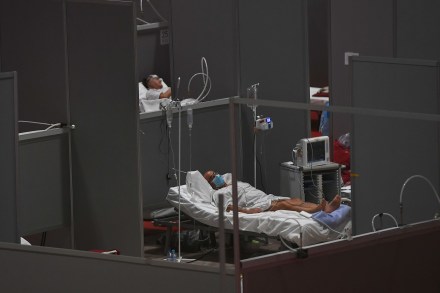Why my husband is throwing socks at the TV during the Covid-19 crisis
My husband has special ‘throwing socks’. They are a rolled-up pair of woolly hiking socks. He does not hike. He used to throw a slipper at the television, and I feared he would graduate to a whisky glass. So I introduced the socks, like a sort of dog toy. The latest target has been the podium at government television briefings that says: ‘Stay home.’ My husband correctly regards this as an Americanism for ‘Stay at home’. The Oxford English Dictionary does not list the phrase, but it occurs 17 times in quotations illustrating the use of other words, and each is, I think, from an American source, except one from





















